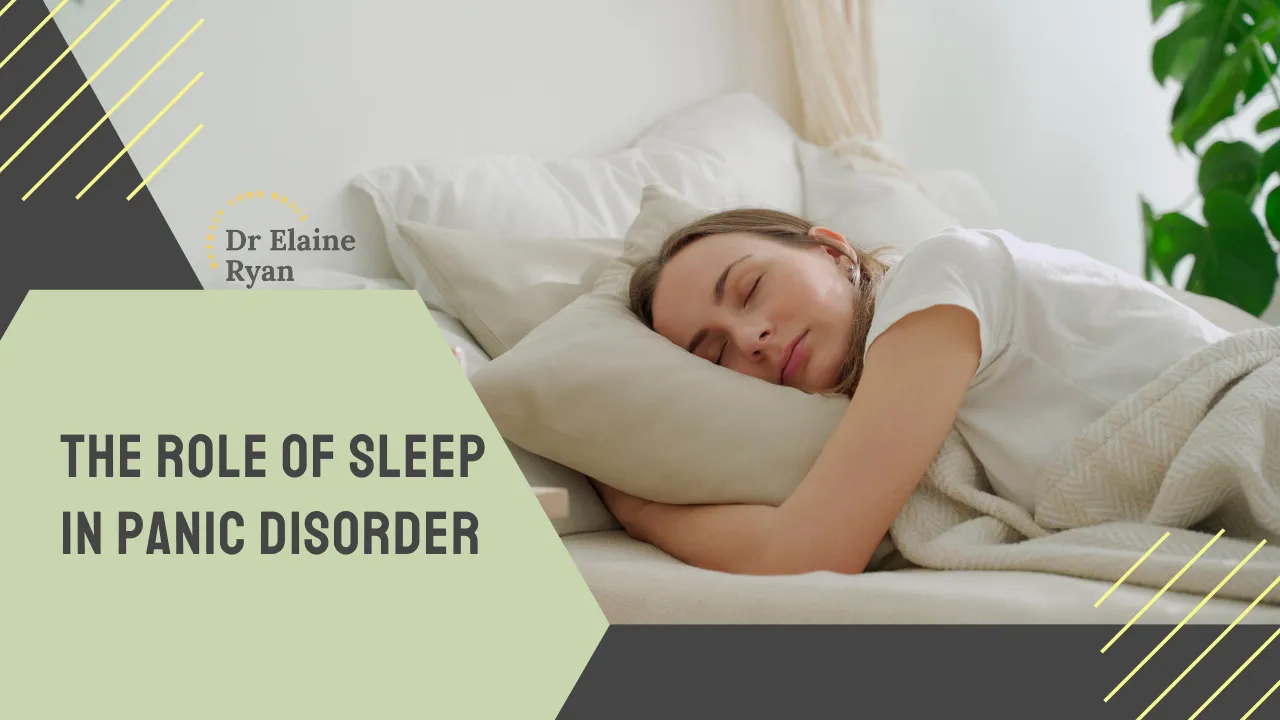I’ve been writing quite a bit recently about panic disorder and have already looked at sleep apnea and sleep, and today, I want to look at the role of sleep in general in terms of the effect it has on panic attacks.
Sleep disturbances can be both a trigger for panic attacks and a consequence of them, creating a vicious cycle that’s hard to break, as was my case, although recently, I was diagnosed with sleep apnea, which may have been more responsible for my experience of panic disorder. In this article, I will explain how poor sleep can lead to panic attacks and, conversely, how experiencing panic attacks can disrupt your sleep before offering some tips on how to sleep with panic disorder.
Sleep is fundamental to well-being, influencing everything from mood to the immune system. I didn’t fully appreciate this until my sleep started to improve, and health conditions that I have had for years started to improve as my brain was getting sufficient time to repair.
Panic Attacks Self-help

Dr Ryan’s online self-help course for Panic Attacks
How Poor Sleep Can Trigger Panic Attacks
A lack of quality sleep can increase the body’s stress response, making it more susceptible to anxiety and panic. When we’re sleep-deprived, our brains are less able to regulate emotions and can misinterpret normal sensations as threats, potentially triggering a panic attack. If you want to read more, this report explains how sleep deprivation activates stress-related pathways and the sympathetic nervous system.
During sleep, especially in the rapid eye movement (REM) stage, your brain processes emotional experiences and regulates neurotransmitters linked to mood and anxiety. Inadequate sleep disrupts this process, potentially increasing the risk of panic attacks.
Sleep deprivation can also cause hormonal imbalances, such as increased cortisol levels, which can heighten anxiety. This heightened state of alertness can make it more likely for someone to experience a panic attack, even in response to minor stressors.
Panic Attacks Disrupting Sleep
On the flip side, experiencing panic attacks can severely disrupt sleep patterns. The intense fear and physical symptoms of a panic attack can make it difficult to relax and fall asleep, leading to insomnia and other sleep disorders.
Anticipatory Anxiety
For those with panic disorder, the fear of having a panic attack can itself be a source of anxiety, particularly at night. This anticipatory anxiety can make it challenging to fall asleep or cause you to wake up frequently throughout the night (read more on anticipatory anxiety here.) This was my experience when I first started having panic attacks, as initially, they only occurred while sleeping, and it got to the stage where I was afraid to go to bed due to the fear of having panic attacks in my sleep.
After a panic attack, the body remains in a heightened state of alertness, which can make it difficult to return to sleep. To make this point more relatable I shall use myself as an example again. When I was woken from sleep due to having a panic attack, the only way I could describe it was intense fear, and the possibility of returning to bed was close to zero, never mind trying to sleep again. This post-attack insomnia can lead to chronic sleep deprivation, further exacerbating the cycle of panic and sleeplessness.

Breaking the Cycle: Improving Sleep Hygiene
- Improving sleep hygiene is crucial for individuals with panic disorder to help break the cycle of sleep anxiety and panic attacks. Here are some tips to promote better sleep:
- Creating a calming routine before bed can signal to your body that it’s time to wind down. This might include activities such as reading, taking a warm bath, or practising relaxation techniques like deep breathing or progressive muscle relaxation.
- Going to bed and waking up at the same time every day, even on weekends, can help regulate your body’s internal clock and improve the quality of your sleep.
- Ensure your bedroom is conducive to sleep by keeping it cool, dark, and quiet. Use blackout curtains, eye masks, earplugs, or white noise machines to create an ideal sleeping environment.
- Avoid consuming caffeine, nicotine, and heavy meals within a few hours of bedtime. These can disrupt sleep or make it harder to fall asleep.
- Regular physical activity can improve sleep quality and reduce anxiety. However, try to avoid vigorous workouts close to bedtime, as they can have the opposite effect.
- The blue light emitted by screens can interfere with the production of melatonin, the hormone that regulates sleep. Try to avoid electronic devices for at least an hour before bed.
Make sure that you get a complete workup from your GP to make sure there are no medical reasons for panic attacks. I keep coming back to this point, but it is important, for me I had sleep apnea, and all the sleep hygiene in the world was not going to help me sleep until I knew there was an underlying medical cause, and treated it.


Sleep Therapy: A Tool for Managing Sleep Anxiety
Sleep therapy, including cognitive-behavioural therapy for insomnia (CBT-I), can be a powerful tool for managing sleep anxiety related to panic disorder. CBT-I helps identify and change thoughts and behaviours that contribute to sleep problems.
Cognitive techniques in CBT-I challenge and reframe negative thoughts about sleep. For instance, the belief that one catastrophic night of sleep will ruin the next day can be reframed to a more balanced perspective.
Behavioural strategies involve establishing a regular sleep-wake schedule and using the bed only for sleep and intimacy. This helps strengthen the association between bed and sleep.
Relaxation training techniques, such as guided imagery or abdominal breathing, can reduce muscle tension and control breathing patterns, making it easier to fall asleep.
Professional Support
Seeking professional support from therapists, sleep specialists, or psychiatrists can offer tailored strategies to address the unique challenges at the intersection of sleep and panic disorder.
Conclusion
If you are suffering from panic attacks, it is imperative you get good quality sleep, and not only is this necessary to allow your brain to repair itself, but it will stop all those hormones shooting through your body when you desperately need it to calm.
